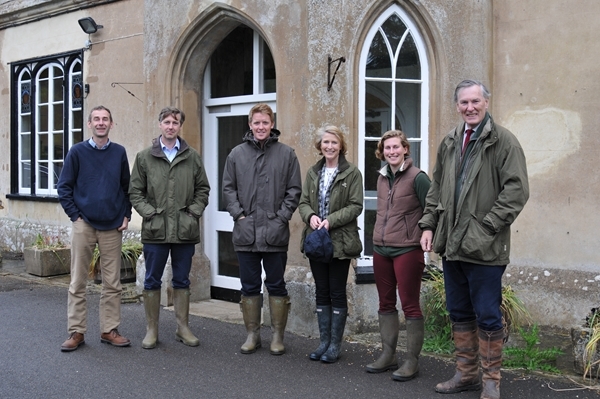
THE Duke of Westminster, Hugh Grosvenor, paid a visit to the GWCT headquarters in Fordingbridge this week to find out about the current work our scientists are doing to help make the countryside rich in game and wildlife.
GWCT’s chief executive, Teresa Dent CBE, led the tour with trustee Stephen Morant.
They met with staff from the farmland ecology unit, wetlands, predation, gamebird research, fundraising and communications.
Later in the day they drove to the Avon Valley where our ecologists have been working hard to reverse the declines of breeding lapwing and redshank. The project - Waders for Real - is collaborative, involving 38 farmers in the valley with work mainly funded by EU LIFE+.
Project ecologist Lizzie Grayshon and head of wetlands research Andrew Hoodless explained how the team’s conservation efforts have resulted in redshank increasing from 19 pairs in 2015 to 33 pairs in 2018 and the lapwing population stabilising from 70 to 80 pairs.
Mrs Dent said: “It was a great pleasure to welcome the Duke of Westminster to Burgate Manor and we were very pleased to be able to show him redshank and lapwing successfully breeding in the valley as a result of this project.
“Support from the Westminster Foundation has contributed to the successful outcome of this project.”
The Duke has a strong personal interest on issues linked to the sustainable stewardship of land and the environment, having studied Countryside Management at Newcastle University.
His father, the 6th Duke of Westminster, was formerly GWCT President from 1987 until 2000, when he was succeeded by the Earl Peel. The late Duke became a Vice-President in 2000, an appointment he held until he passed away in 2016.
Notes to editors
The Game & Wildlife Conservation Trust – providing research-led conservation for a thriving countryside. The GWCT is an independent wildlife conservation charity which has carried out scientific research into Britain’s game and wildlife since the 1930s. We advise farmers and landowners on improving wildlife habitats. We employ more than 60 post-doctoral scientists and other research staff with expertise in areas such as birds, insects, mammals, farming, fish and statistics. We undertake our own research as well as projects funded by contract and grant-aid from government and private bodies.
For information, contact:
Eleanor Williams
Telephone: 07592 025476
Email: press@gwct.org.uk